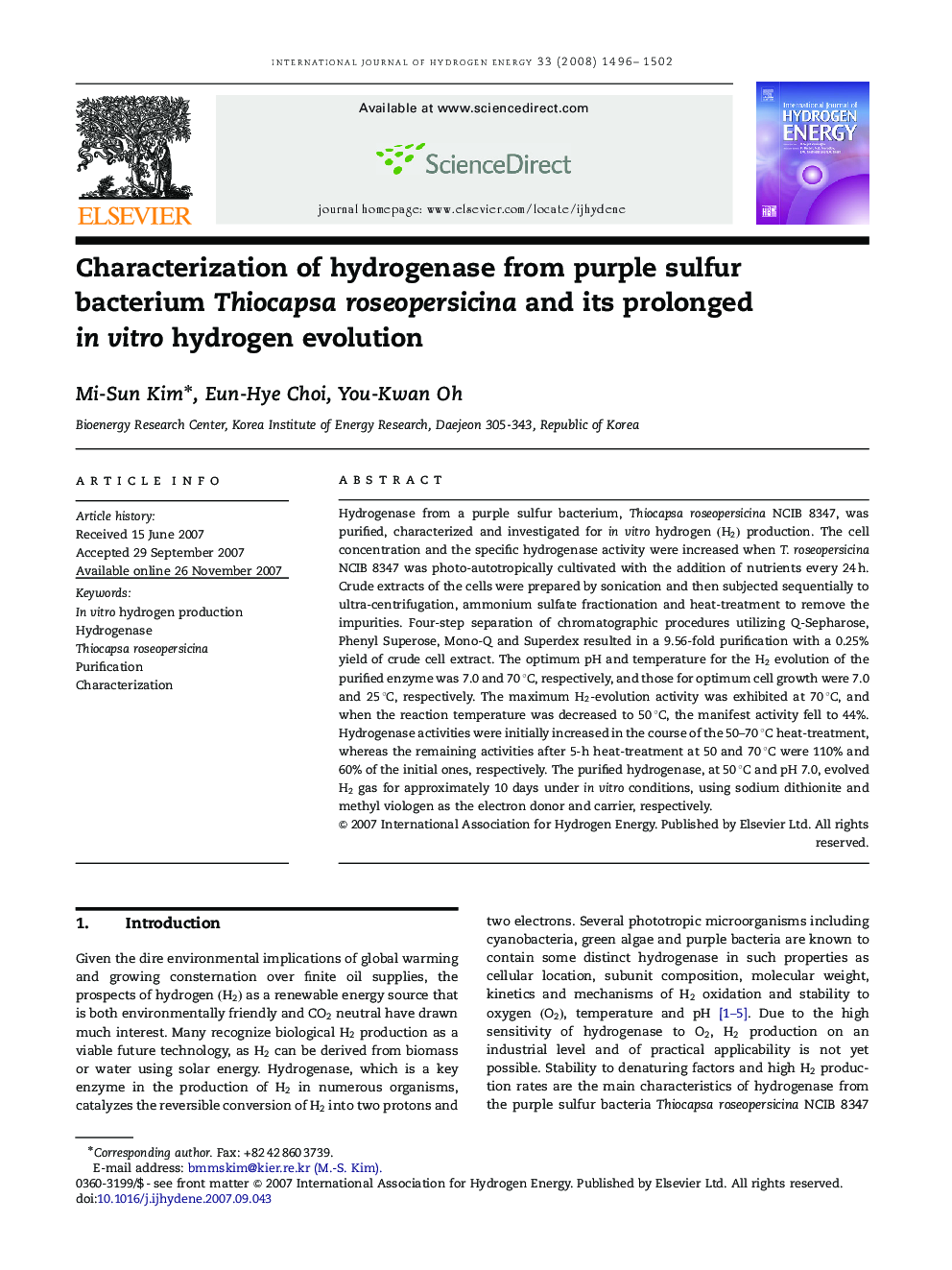| Article ID | Journal | Published Year | Pages | File Type |
|---|---|---|---|---|
| 1281763 | International Journal of Hydrogen Energy | 2008 | 7 Pages |
Hydrogenase from a purple sulfur bacterium, Thiocapsa roseopersicina NCIB 8347, was purified, characterized and investigated for in vitro hydrogen (H2)(H2) production. The cell concentration and the specific hydrogenase activity were increased when T. roseopersicina NCIB 8347 was photo-autotropically cultivated with the addition of nutrients every 24 h. Crude extracts of the cells were prepared by sonication and then subjected sequentially to ultra-centrifugation, ammonium sulfate fractionation and heat-treatment to remove the impurities. Four-step separation of chromatographic procedures utilizing Q-Sepharose, Phenyl Superose, Mono-Q and Superdex resulted in a 9.56-fold purification with a 0.25% yield of crude cell extract. The optimum pH and temperature for the H2H2 evolution of the purified enzyme was 7.0 and 70 °C, respectively, and those for optimum cell growth were 7.0 and 25 °C, respectively. The maximum H2H2-evolution activity was exhibited at 70 °C, and when the reaction temperature was decreased to 50 °C, the manifest activity fell to 44%. Hydrogenase activities were initially increased in the course of the 50–70 °C heat-treatment, whereas the remaining activities after 5-h heat-treatment at 50 and 70 °C were 110% and 60% of the initial ones, respectively. The purified hydrogenase, at 50 °C and pH 7.0, evolved H2H2 gas for approximately 10 days under in vitro conditions, using sodium dithionite and methyl viologen as the electron donor and carrier, respectively.
